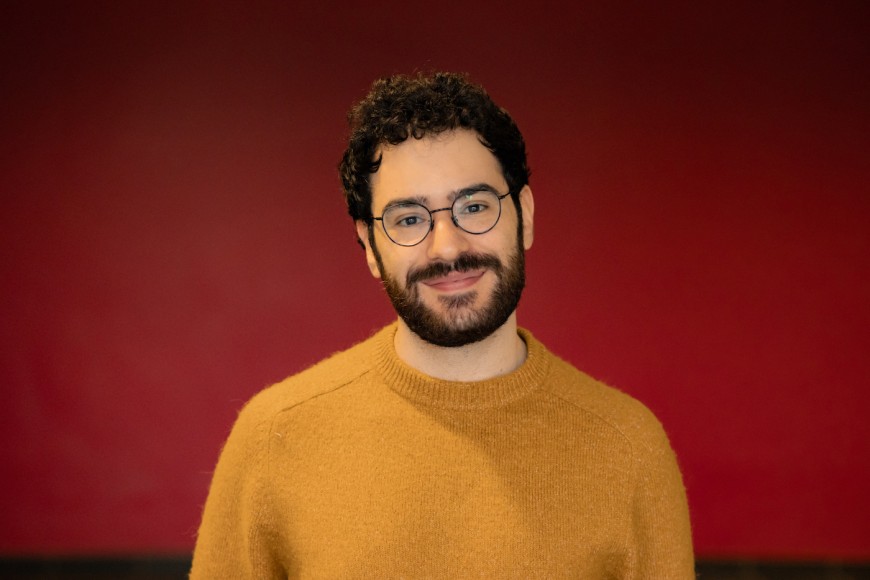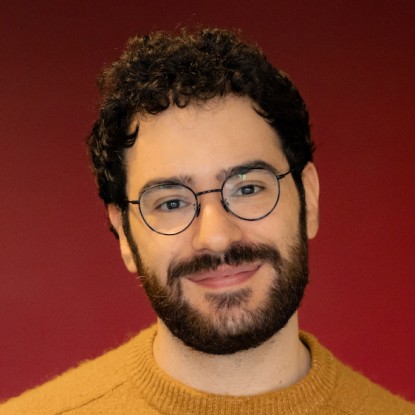New at the Department: IRG Leader Simone Balloccu
Natural Language Processing for Expert Domains (ExpNLP)
2024/11/11
In October, Simone Balloccu joined the Department as leader of the new Independent Research Group NLP for Experts. Previously, he was a postdoctoral researcher at the Institute of Formal and Applied Linguistics (UFAL) at at the Charles University in Prague (CZ), contributing to the ERC-funded project Next-Generation Natural Language Generation (NG-NLG). The 31-year-old computer scientist received his PhD in Artificial Intelligence from the University of Aberdeen in the UK, where he was part of the Horizon 2020, Marie Skłodowska-Curie PhilHumans project. Before this, he graduated from the Università degli Studi di Cagliari (IT) with a master’s degree in computer science and first-class honours. We would like to welcome him and ask a few questions to get to know him a little better.

What is your research about?
My research focuses on applying and evaluating AI to expert domains. In the past, I focused mainly on domains related to behaviour change, such as counselling and nutrition, and healthcare in general. I also work on evaluating the safety and controllability of AI. I have extensive experience in human evaluation of AI.
Why should students be interested in your scientific subject? What makes it exciting?
Nowadays, we’re used to benchmarks as the standard way to evaluate AI. However, no matter how well a model performs on these automatic assessments, deployment requires human evaluation. This is especially true in expert domains (think about software engineering, security or healthcare).
My research interests arise from the above: how can we effectively evaluate AI in the real world? What does human feedback (comments, rankings, annotations, agreement – and disagreement especially) teach us? When is good performance “good enough” for deployment?
What you can expect when working with me: a “human” approach to AI, focusing on both quantitative and qualitative evaluation, ethics, in collaboration with domain experts and through a multidisciplinary approach.
TU Darmstadt emphasises interdisciplinarity. How does your research intersect or interface with other faculties?
Throughout my research, I always prioritised the inclusion of partner institutions and companies when working on human evaluation of AI. My work often involves domain experts and the extensive inclusion of their feedback in my experiments’ planning, execution, as well as results analysis. As a result, my work is highly interdisciplinary because, no matter what task you want your model to solve, there will be some experts out there who can help you.
If I were a student today, I would…
Learn more from my colleagues. During your studies, you are constantly surrounded by people who are doing their best, like you. Some of them will be better than you at something, and that’s okay. Learning from them is the best you can do.
The perfect balance to a stressful working day is …
Resting and valuing your own happiness. Toxic competition and relaxation denial will only bring rushed and suboptimal work. A mature researcher is one who knows when it’s time to stop and think about something else.


